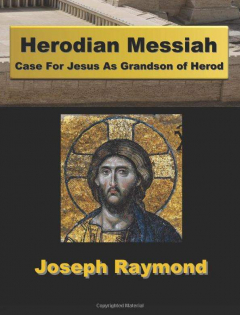The Cathars considered themselves to be the true followers of Jesus but that did not mean they were Christians. Not in the accepted sense anyway. There is nothing new in the material The whole of this segment on alternative testaments represents an attempt to get an understanding of what the Cathars might have believed.
To revisit the topic of alternate theology; in reading about the Cathars two phases caught my eye; “Jesus is not god but a most remarkable man”and “The cruxifiction was an illusion”.
I am not the only person to have picked up on these phrases. Other writers have however, tried to turn these statements into another theological mystery, searching for an extended definition of the nature of god and his relationship with Jesus Christ.
I have taken a different route. I have challenged myself to search for scenarios which would enable these statements to be taken literally.
A remarkable man takes part in a illusion which makes it seem that he had died. Why would he have done this, how could it be stage managed and perhaps most importantly who was he?
The Last Pharoh
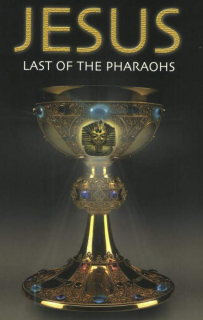 Ralph Ellis, who proposes Jesus as “The Last Pharoh” is the latest in a long line of authors who have speculated on who Jesus actually was. There has been a recent flurry of interest in who Jesus was and what was he trying to do.
Ralph Ellis, who proposes Jesus as “The Last Pharoh” is the latest in a long line of authors who have speculated on who Jesus actually was. There has been a recent flurry of interest in who Jesus was and what was he trying to do.Da Vinci Code
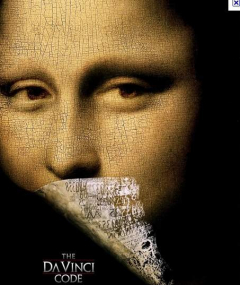 Interest peaked in 2001 with the publication of Dan Brown’s “The Da Vinci Code” which was subsequently made into a film.
Interest peaked in 2001 with the publication of Dan Brown’s “The Da Vinci Code” which was subsequently made into a film.Holy Blood, Holy Grail
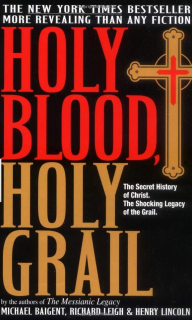 In fact the story included information from an earlier book ” Holy Blood, Holy Grail” by the trio of authors, Michael Baigent, Henry Lincoln and Richard Leigh.
In fact the story included information from an earlier book ” Holy Blood, Holy Grail” by the trio of authors, Michael Baigent, Henry Lincoln and Richard Leigh.That extraction lead to a court case over claims of breach of copyright.
Bloodline of the Holy Grail
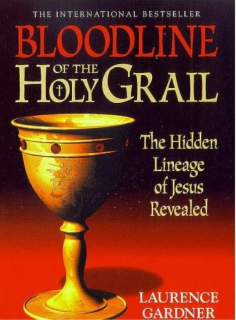 The “Da Vinci Code” also drew on the more genealogically oriented book, “The bloodline of the Holy Grail” by the late Laurence Gardner.
The “Da Vinci Code” also drew on the more genealogically oriented book, “The bloodline of the Holy Grail” by the late Laurence Gardner.Heresy
It must be stressed however that these discussions have been taking place in both learned and popular gatherings since the time of Jesus. Geneologies showing descent from Jesus are hidden away in royal libraries throughout Europe.
Firmly held Belief
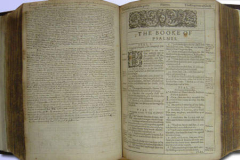 The difficulty is that the Church of Rome and other christian churches successfully prevented the publication of all opinions which differed in any way from their own doctrine. This censorship survived until recent times. Suddenly, surprising recently, heresy again became possible. Incidentally “Heresy’ in it’s original meaning in the greek language can be translated as ” firmly held belief”. The Church of Rome redefined it. A firmly held belief not in their version of the bible became heresy, the most serious of mortal sins.
The difficulty is that the Church of Rome and other christian churches successfully prevented the publication of all opinions which differed in any way from their own doctrine. This censorship survived until recent times. Suddenly, surprising recently, heresy again became possible. Incidentally “Heresy’ in it’s original meaning in the greek language can be translated as ” firmly held belief”. The Church of Rome redefined it. A firmly held belief not in their version of the bible became heresy, the most serious of mortal sins.The Golden Bough
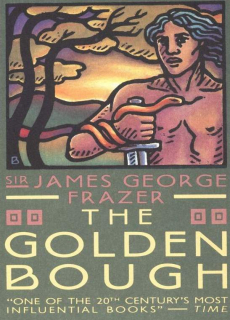 Sir James George Frazer(1854-1941), a student of classical greek philosophy and a fellow of Trinity College Cambridge was famous for his book ” The Golden Bough”. The book was well received in academia and accepted as outstanding by the award of a knighthood in 1914, but was reviled by all Christian communities.
Sir James George Frazer(1854-1941), a student of classical greek philosophy and a fellow of Trinity College Cambridge was famous for his book ” The Golden Bough”. The book was well received in academia and accepted as outstanding by the award of a knighthood in 1914, but was reviled by all Christian communities.
On the surface it was a learned comparison between mythological and religious beliefs. The reason it was hated by devout christians was that it proposed (perhaps gently suggested) that Christianity might be based on earlier “Pagan” not the commonly accepted “Jewish”traditions and beliefs.
The White Goddess
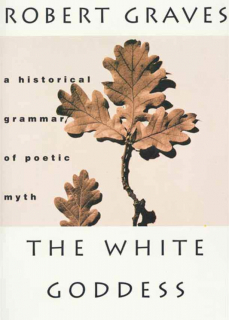 Amongst those who followed was Robert Von Ranke Graves ( 1895-1985), Also a student and translator of greek classics, picked up on these themes shortly after Frazer’s death. Graves knew he was in dangerous waters. He gave an assessment of Frazer’s later life:
Amongst those who followed was Robert Von Ranke Graves ( 1895-1985), Also a student and translator of greek classics, picked up on these themes shortly after Frazer’s death. Graves knew he was in dangerous waters. He gave an assessment of Frazer’s later life:
“Sir James Frazer was able to keep his beautiful rooms at Trinity College, Cambridge, until his death by carefully and methodically sailing all around his dangerous subject, as if charting the coastline of a forbidden island without actually committing himself to a declaration that it existed. What he was saying-not-saying was that Christian legend, dogma and ritual are the refinement of a great body of primitive and even barbarous beliefs, and that almost the only original element in Christianity is the personality of Jesus.”
Graves book,”The White Goddess” cut across conventional Christian beliefs. In his view the worship of the male dominated god of Judaism displaced a more sympathetic goddess worship, with detrimental results for the human race. He found echoes of the belief in the white goddess in the greek myths and early celtic writing.
The Masks of God
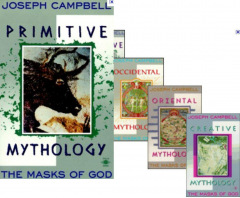 Joseph Campbell (1904-1987) built, or perhaps reinterpreted the earlier work. Campbell described himself as a student of “Comparative Religions” and “Comparative Mythology” and gave full credit to both Graves and Frazer for the earlier work. Campbell however, like Frazer was careful not to dwell too long on the potential impact of his work on Christian belief. Campbell invented the terms Monomyth and Hero’s Journey.
Joseph Campbell (1904-1987) built, or perhaps reinterpreted the earlier work. Campbell described himself as a student of “Comparative Religions” and “Comparative Mythology” and gave full credit to both Graves and Frazer for the earlier work. Campbell however, like Frazer was careful not to dwell too long on the potential impact of his work on Christian belief. Campbell invented the terms Monomyth and Hero’s Journey.
Because of his association with the story structure of the “Star Wars” movies, Campbell is best remembered for his ” The Hero with a Thousand Faces”. which outlines the Hero’s Jouney. He was however essentially an academic, whose magnum opus was ” The Masks of God” which proposes that all religions are the same, it is only the presentation which differs.
Claudius and Jesus
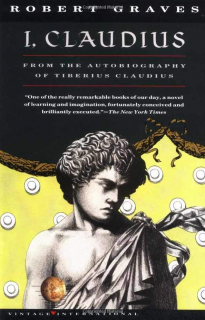 Graves was the exception in this intellectual trilogy. He did not hesitate to spell out the implications. Thanks to the success of his earlier books he lived in comfort on the Balearic island of Majorca and used the later part of his career to pursue topics of his choice.
Graves was the exception in this intellectual trilogy. He did not hesitate to spell out the implications. Thanks to the success of his earlier books he lived in comfort on the Balearic island of Majorca and used the later part of his career to pursue topics of his choice.
His better known works; “I Claudius” and “Claudius the God” were produced in the early 1930’s The implications of his thinking was not obvious but his notes indicate that he was already working on “King Jesus” which was not published until 1946 and “The White Goddess” (1948). The books were concurrent in Graves mind and in fact he worked on the “White Goddess” first.
King Jesus
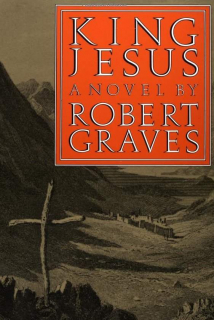 King Jesus was a speculation on who Jesus actually was. It a life of Jesus show through the eyes of a fictional contemporary, Agabus the Decapolitan.
King Jesus was a speculation on who Jesus actually was. It a life of Jesus show through the eyes of a fictional contemporary, Agabus the Decapolitan.
Graves concluded that Jesus was the product of a liason between Antipater, King Herod of Judea’s son and Miriam a temple virgin. Graves hypothosis is that what made Jesus unique was his brilliant mind; so brilliant that he antagonised every petty bureaucrat, every inadequate priest and every unimaginative revolutionary. He explains the events leading up to the crucifixion, and Jesus reactions are explained as typical of how an outstanding person, unable to fulfil his mission, might behave. It has been praised as a book of insight and scholarship.
However the “Time Life’ review of Sept 30th 1946 says “Many a reader may conclude that this book is a work of fundamental perversity. The perversity may not be conscious, but in a writer of Graves’s intelligence that is unlikely. The historical commentary he appends contains signs of defensiveness unusual in a writer as bland as Graves—e.g., “I write without any wish to offend orthodox Catholics. . . .” The author cannot have much doubt that he, or at least Agabus the Decapolitan, is going to be taken apart by readers to whom Christ is much more than a subject for a cleverly contrived novel.”
A “Historical Commentary” published at the end of the book, Robert Graves remarks, concerning the books historical basis, “A detailed commentary written to justify the unorthodox views contained in this book would be two or three times as long as the book itself, and would take years to complete; I beg to be excused the task …[but]…I undertake to my readers that every important element in my story is based on some tradition, however tenuous, and that I have taken more than ordinary pains to verify my historical background”
The Piso family
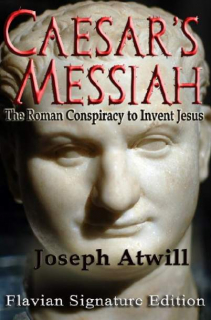 A widespread theme on the web is that the story of christianity was invented by the roman aristocrats, The Piso family who had close contacts with the Emperors Claudius, Vespasian and Titus.
A widespread theme on the web is that the story of christianity was invented by the roman aristocrats, The Piso family who had close contacts with the Emperors Claudius, Vespasian and Titus.
It would be impossible to say any of the findings of these various writers were right or wrong.
It is certainly appealing to assume Jesus never existed; that everything we know about him was just invented. Nevertheless the Cathars and therefore Ximene believed he did exist, Again the questions must be asked. Why would a remarkable many take part in an illusion which made it appear he had died and perhaps most importantly, who was he?
